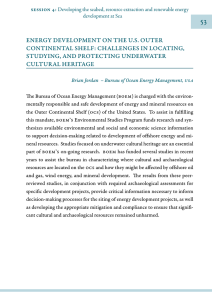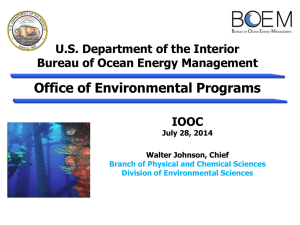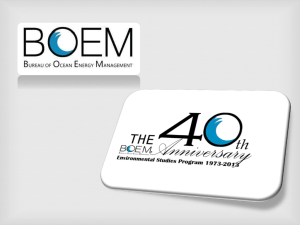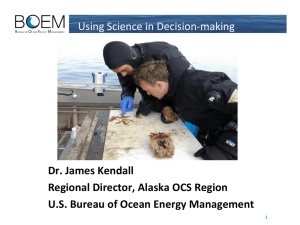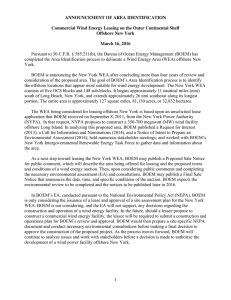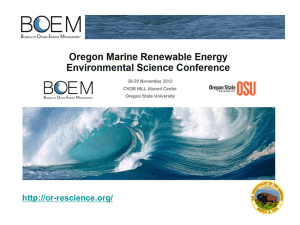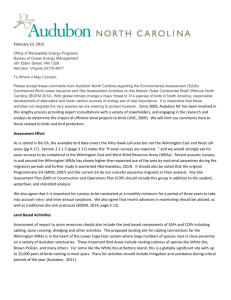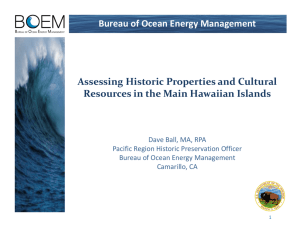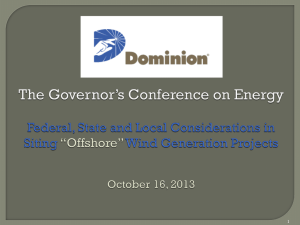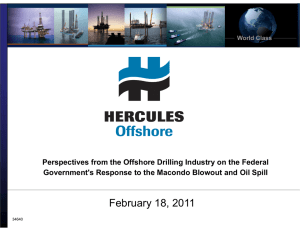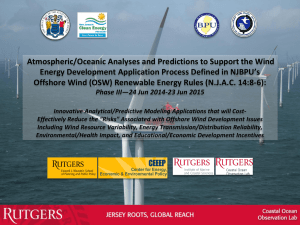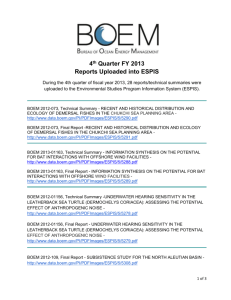Litigation Facts and Issues - Center for Sustainable Economy
advertisement
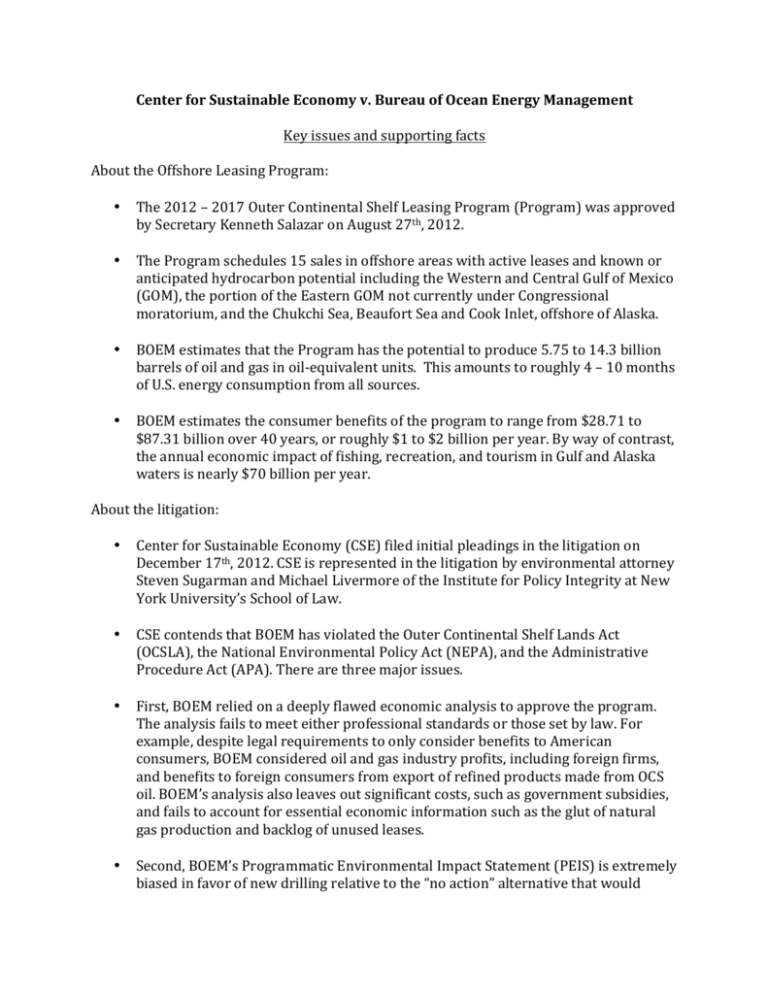
Center for Sustainable Economy v. Bureau of Ocean Energy Management Key issues and supporting facts About the Offshore Leasing Program: • The 2012 – 2017 Outer Continental Shelf Leasing Program (Program) was approved by Secretary Kenneth Salazar on August 27th, 2012. • The Program schedules 15 sales in offshore areas with active leases and known or anticipated hydrocarbon potential including the Western and Central Gulf of Mexico (GOM), the portion of the Eastern GOM not currently under Congressional moratorium, and the Chukchi Sea, Beaufort Sea and Cook Inlet, offshore of Alaska. • BOEM estimates that the Program has the potential to produce 5.75 to 14.3 billion barrels of oil and gas in oil-­‐equivalent units. This amounts to roughly 4 – 10 months of U.S. energy consumption from all sources. • BOEM estimates the consumer benefits of the program to range from $28.71 to $87.31 billion over 40 years, or roughly $1 to $2 billion per year. By way of contrast, the annual economic impact of fishing, recreation, and tourism in Gulf and Alaska waters is nearly $70 billion per year. About the litigation: • Center for Sustainable Economy (CSE) filed initial pleadings in the litigation on December 17th, 2012. CSE is represented in the litigation by environmental attorney Steven Sugarman and Michael Livermore of the Institute for Policy Integrity at New York University’s School of Law. • CSE contends that BOEM has violated the Outer Continental Shelf Lands Act (OCSLA), the National Environmental Policy Act (NEPA), and the Administrative Procedure Act (APA). There are three major issues. • First, BOEM relied on a deeply flawed economic analysis to approve the program. The analysis fails to meet either professional standards or those set by law. For example, despite legal requirements to only consider benefits to American consumers, BOEM considered oil and gas industry profits, including foreign firms, and benefits to foreign consumers from export of refined products made from OCS oil. BOEM’s analysis also leaves out significant costs, such as government subsidies, and fails to account for essential economic information such as the glut of natural gas production and backlog of unused leases. • Second, BOEM’s Programmatic Environmental Impact Statement (PEIS) is extremely biased in favor of new drilling relative to the “no action” alternative that would leave oil and gas reserves in the ground. As an example, BOEM failed to consider the vast economic benefits of intact marine ecosystems in their natural state. As another, BOEM actually claims that the no action alternative would result in more pollution to U.S. waters than drilling under the theory that if drilling were not allowed, we would have to import more oil by way of tankers which spill more oil than drilling rigs. • Third, BOEM failed to incorporate the option value of waiting to develop additional OCS oil and gas reserves to benefit future generations. The importance of option value to analyze decisions under uncertainty has been widely recognized in the economics community for several decades. By not using standard economic methodologies that would incorporate the full option value of a resource, BOEM’s current leasing program overlooks a key factor in the decision, does not quantify all economic and environmental costs and benefits as accurately as possible, and ultimately leads BOME to not make optimal choices on the timing of leases. About Center for Sustainable Economy: • Center for Sustainable Economy is a non-­‐profit public interest consulting firm specializing in environmental economics. We conduct economic analysis, develop sustainability solutions, and provide technical and legal support to our government, business, and non-­‐profit clients. About Institute for Policy Integrity: • The Institute for Policy Integrity at New York University School of Law is a non-­‐ partisan think tank using economics and law to protect the environment, public health, and consumers. For more information: John Talberth, Ph.D. President and Senior Economist Center for Sustainable Economy (510) 384-­‐5724 jtalberth@sustainable-­‐economy.org
